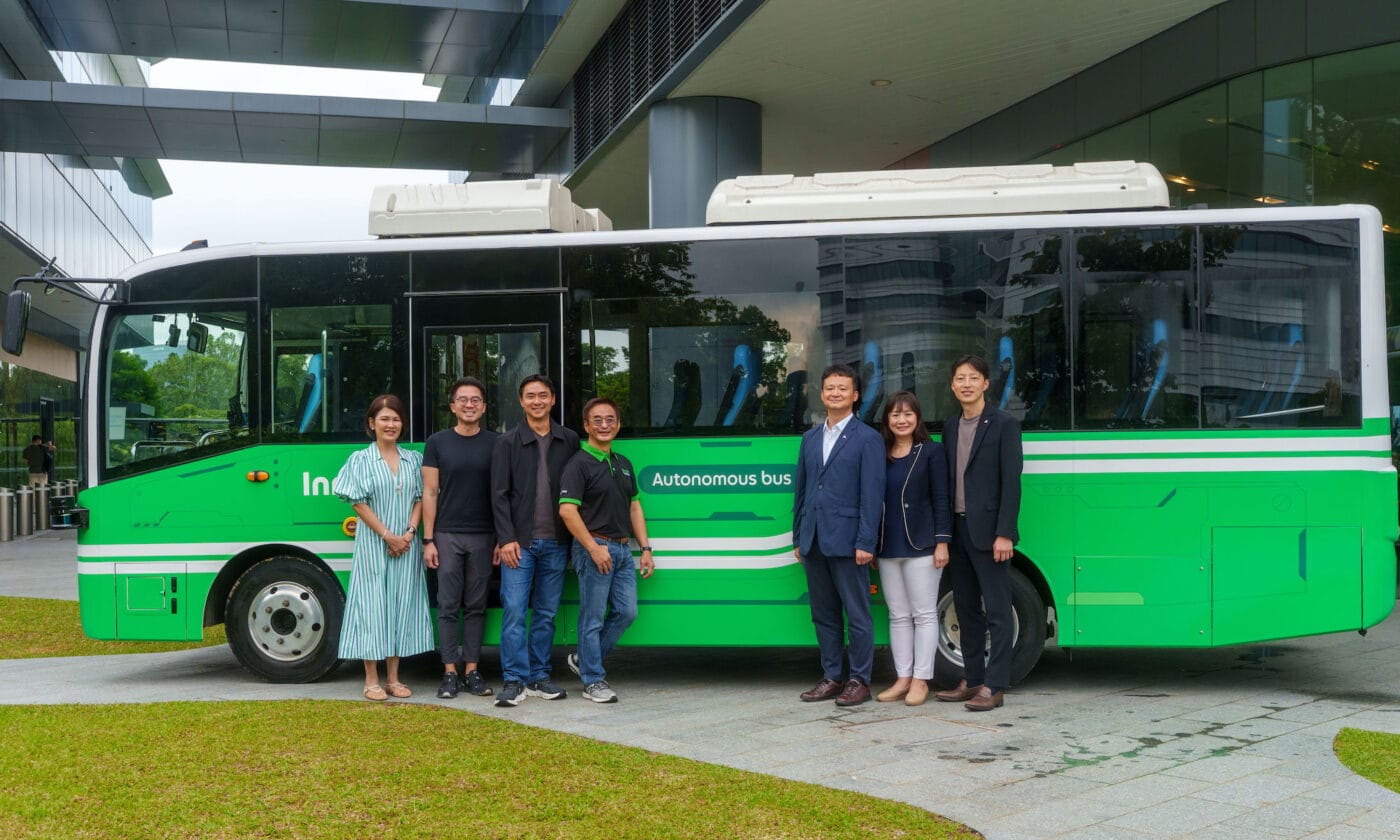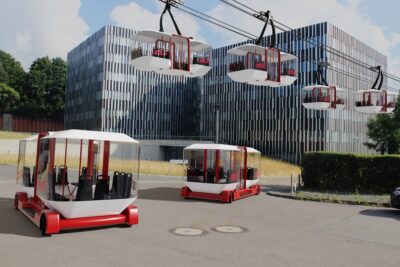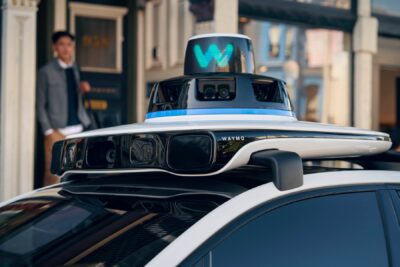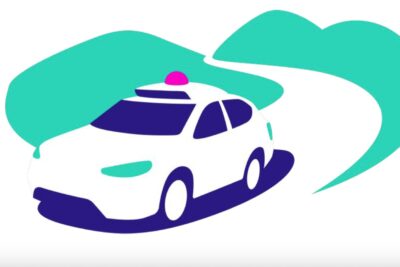Grab begins autonomous electric bus trials in Singapore
Grab has retrofitted an electric shuttle bus with A2Z’s autonomous software and hardware and in-house Internet of Things (IoT) devices. The modified bus features eleven sensors, including a 360º spinning, long-range LiDAR, a regular long-range LiDAR, a long-range radar, and cameras, which enable it to accurately perceive and interpret its surroundings. In case any of the autonomous driving technologies malfunctions, a pre-programmed safety algorithm automatically instructs the bus to come to a safe and complete stop.
This pilot is the first time A2Z is deploying its autonomous technology in Singapore, Ryan (Ho Jin) Kim, Managing Director – Business and International, A2Z, said. The electric autonomous bus does not require a driver, but Grab keeps a trained professional onboard at all times to ensure passenger safety and step in if needed.
Grab uses the electric shuttle bus to provide its employees with a shuttle service between its One-North headquarters and a nearby Mass Rapid Transit (MRT) station, making their first- and last-mile commutes more eco-friendly. The route spans 3.9 kilometres, and before commencing the pilot, the company tested the electric autonomous bus there for more than 100 hours.
Employees using the electric autonomous bus can track its schedule and location from the Grab app. In the future, Grab will also show them seat availability from the app. “Through this initiative, we are evaluating the safety performance of autonomous technologies and exploring the potential new job opportunities this sector could create,” said Yee Wee Tang, Regional Head of Operations, Grab.
Grab’s tie-up with A2Z for the new venture is part of a regional partnership with various prominent autonomous technology companies. In March, the company inked a deal with A2Z as well as Motional, WeRide, and Zelos to test driverless vehicles for mobility and delivery services.





0 Comments